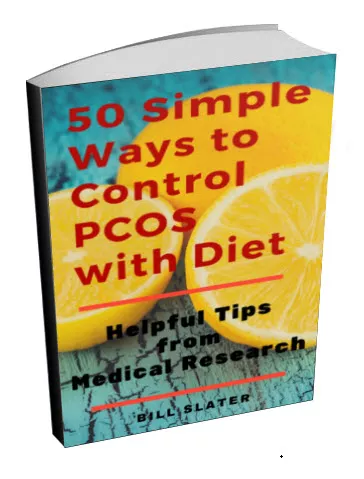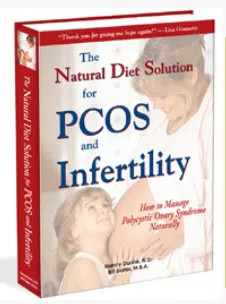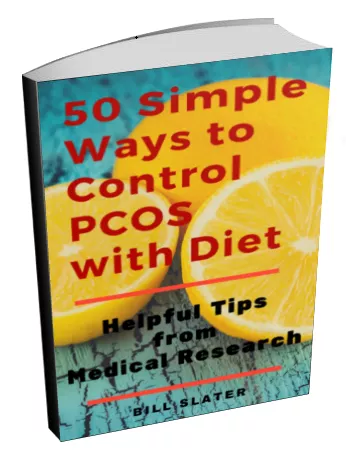Have PCOS? Hysterectomy Has Benefits and Risks
We're frequently asked by women with PCOS whether we recommend that you have your ovaries taken out, in order to reduce your symptoms. Possibly your doctor has said: "Get a hysterectomy and that will get rid of your polycystic ovary syndrome".
Free PCOS Newsletter
Our answer to this is that removal of your ovaries does not necessarily result in the disappearance of symptoms. Why? Because polycystic ovary syndrome is more than just an ovarian problem. It is a disorder that affects your entire body. Many organs are involved.
In addition, there are some potential downsides of oophorectomy (removal of ovaries) you should be aware of.
Hysterectomy Caution

Researchers at the UCLA School of Medicine had this to say: "New studies have suggested that elective oophorectomy may not be advisable for the majority of women, as it may lead to a higher risk of death from cardiovascular disease and hip fracture, and may result in a higher incidence of dementia and Parkinson's disease."
We've spoken elsewhere on this site about increased cardiovascular and dementia risks for women with PCOS. If you decide to have your ovaries removed, are you actually decreasing or increasing these risks?
Don't let any doctor push you into a hysterectomy without your full and complete understanding and acceptance of the benefits vs. the risks.
Remember, once your ovaries are taken out, they can't be put back.
No one cares as much about your future health as you do! Please take all the time you need to figure out what's best for you before you make any health decision.
Definitions: PCOS Surgical Procedures
Oophorectomy is a surgical procedure to remove one or both of your ovaries.
A hysterectomy is the surgical removal of all or part of your uterus. A total hysterectomy is the removal of the uterus and cervix. A laparoscopic hysterectomy usually results in a faster recovery.
Ovarian drilling is a laparoscopic surgical procedure in which a laser fiber or electrosurgical needle punctures the ovary 4 to 10 times. The purpose of this procedure is to damage the ovaries enough so that they produce a lower level of male hormones.
Ovarian drilling is employed less frequently these days. Most doctors will prescribe pharmaceuticals as the primary treatment for PCOS.
Return to Medical Therapies Page
Sources:
Parker WH et al Elective oophorectomy in the gynecological patient: when is it desirable?, Curr Opin Obstet Gynecol. 2007 Aug;19(4):350-4
Rocca WA et al Increased risk of cognitive impairment or dementia in women who underwent oophorectomy before menopause, Neurology. 2007 Sep 11;69(11):1074-83
Get Answers to your Questions about
- Fertility
- Weight Control
- Hair Loss
- Stress
- Unwanted Hair
- Acne...and more!
FREE PCOS Report
and Newsletter

Your email is safe with us. We respect your privacy, and you may unsubscribe at any time.
Recent Articles
-
PCOS Long Journey to The Happy End
Apr 30, 18 07:24 PM
Hi Girls, Maybe my story will have one day a good end but I am not there yet. Until I was 31 years old I lived my dream, having lovely husband, good -
PCOS and Miscarriage
Apr 17, 18 04:03 PM
Proper diet and natural supplements can help the body maintain a pregnancy through successful delivery.
-
How to Deal with PCOS and Stress
Apr 04, 18 04:19 PM
Your body has a natural capacity to heal itself if you provide it with the necessary tools.





